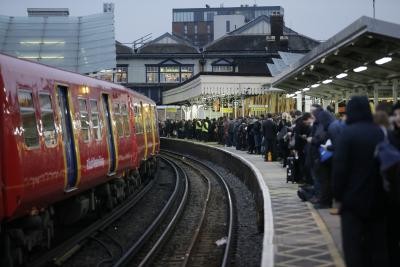
London, The United Kingdom has a jobs problem. There just arent enough workers to keep its economy moving forward, and many employees are growing angry about inflation taking a large bite out of their paychecks, CNN reported.
The problem escalated on Tuesday as thousands of rail workers went on strike over demands for better pay and working conditions -- the biggest walkout on the railways in 30 years -- bringing large parts of the network to a halt. More strikes are set for Thursday and Saturday, CNN reported.
A separate strike by workers on London Underground also halted tube services. The railway strikes could continue for months, the National Union of Rail, Maritime and Transport Workers has said, and teachers, nurses and other workers could walk out as their pay falls behind soaring rates of inflation, now forecast to peak above 11 per cent later this year.
Unison, a union representing 1.3 million public sector workers, had said last week that it was "strike-ready".
This month's rail strikes alone could cost the tourism, leisure and theatre industries more than $1.2 billion, Kate Nicholls, CEO of trade body UK Hospitality, told Times Radio last week, CNN reported.
A summer of strikes would deal a hefty blow to an economy that has slipped into reverse. But activity was already being held back in industries such as aviation, hospitality and social care because of a record number of vacancies -- 1.3 million at the last official count.
Mandira Sarkar, owner of Mandira's Kitchen, a food delivery and catering company in the southwest of England, described the labour shortage as a "slow death" for her business of six years.
"It's been a complete nightmare... [we're] literally down on our knees as we just can't seem to find the staff," she told CNN Business.


.jpeg)

